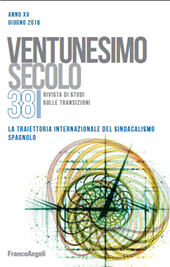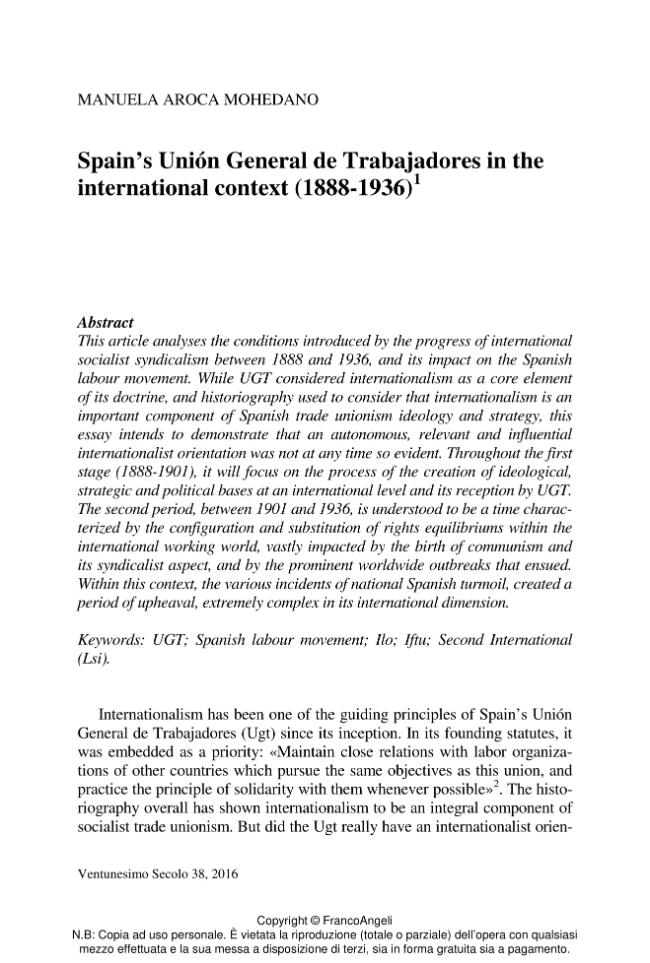Spain's Unión General de Trabajadores in the international context (1888-1936)
9-33 p.
This article analyses the conditions introduced by the progress of international socialist syndicalism between 1888 and 1936, and its impact on the Spanish labour movement. While UGT considered internationalism as a core element of its doctrine, and historiography used to consider that internationalism is an important component of Spanish trade unionism ideology and strategy, this essay intends to demonstrate that an autonomous, relevant and influential internationalist orientation was not at any time so evident. Throughout the first stage (1888-1901), it will focus on the process of the creation of ideological, strategic and political bases at an international level and its reception by UGT. The second period, between 1901 and 1936, is understood to be a time characterized by the configuration and substitution of rights equilibriums within the international working world, vastly impacted by the birth of communism and its syndicalist aspect, and by the prominent worldwide outbreaks that ensued. Within this co
ntext, the various incidents of national Spanish turmoil, created a period of upheaval, extremely complex in its international dimension. [Publisher's Text].
-
Artikel aus derselben Ausgabe (einzeln erhältlich)
-
Informationen
ISSN: 1594-3755
KEYWORDS
- UGT, Spanish labour movement, Ilo, Iftu, Second International (Lsi)



